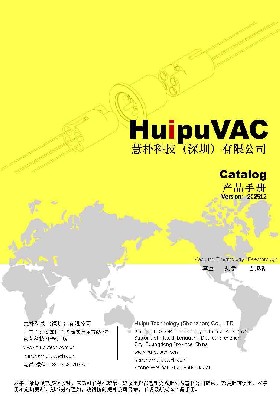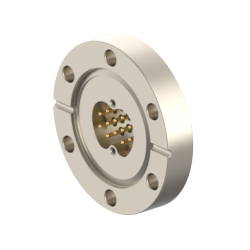In the field of vacuum engineering, there are not only requirements for the physical, chemical and mechanical properties of materials, but also requirements for vacuum properties, such as gas permeability, outgassing performance, vapor pressure, and evaporation rate. Now let's talk about some other performance requirements besides this.
(1) Mechanical strength. The walls of the vacuum system must withstand atmospheric pressure. Therefore, it must meet the minimum mechanical strength and rigidity requirements, and the total pressure that the structure of the corresponding size can withstand should be considered.
(2) Thermal performance. Many vacuum systems are subject to temperature changes, such as heating and cooling or both. Because the surface must be very familiar with the thermal properties of the materials used. Not only the melting point must be considered, but also the change in strength with temperature. For example, the mechanical properties of copper begin to decline well before the low dry melting temperature, so it is not suitable to use copper to make the pressure vessel wall of the vacuum vessel. In addition, the materials of the vacuum system are not only affected by slow changes in temperature, but also by sudden changes in temperature. Therefore, the thermal shock resistance of the material must also be considered.
(3) Electromagnetic performance. Many parts in the vacuum system must have the electrical properties required to complete a certain function or process, and these properties must not contradict the requirements of the vacuum system. For example, the components work in a vacuum chamber and are cooled by radiant heat. Therefore, the working temperature of the components will be very high, which may affect the electrical performance of the components. Therefore, the high temperature resistance of the working components should be considered in the material selection and structural design. And cooling problems.
In many vacuum systems, charged particle beams are often used. However, these charged particle beams are often susceptible to interference from some unnecessary magnetic fields. Therefore, in systems with electron beams or ion beams, the magnetic properties of the system materials must be carefully considered. In some cases, even a small magnetic field may cause serious problems. Therefore, non-magnetic materials must be considered.
(4) Other properties. Optical properties (such as observation windows), hardness, corrosion resistance, thermal conductivity and thermal expansion often also play a very important role in vacuum systems.
(Huiputech)

Download Latest Catalog
2026-01-28

Z-S-CF40-1216S,Z-S-CF40-1216M,Z-S-CF40-1216L
2026-01-28
Contact : Martin
Tel : +86 18588203671
Mobile : +86 18588203671
Fax : +86 18588203671
Email : Martin@huiputech.com
Address : 3/F, Building F, GLORY Technology Park, No.2 Baolong 5th Road, Longgang District, Shenzhen, Guangdong, China.